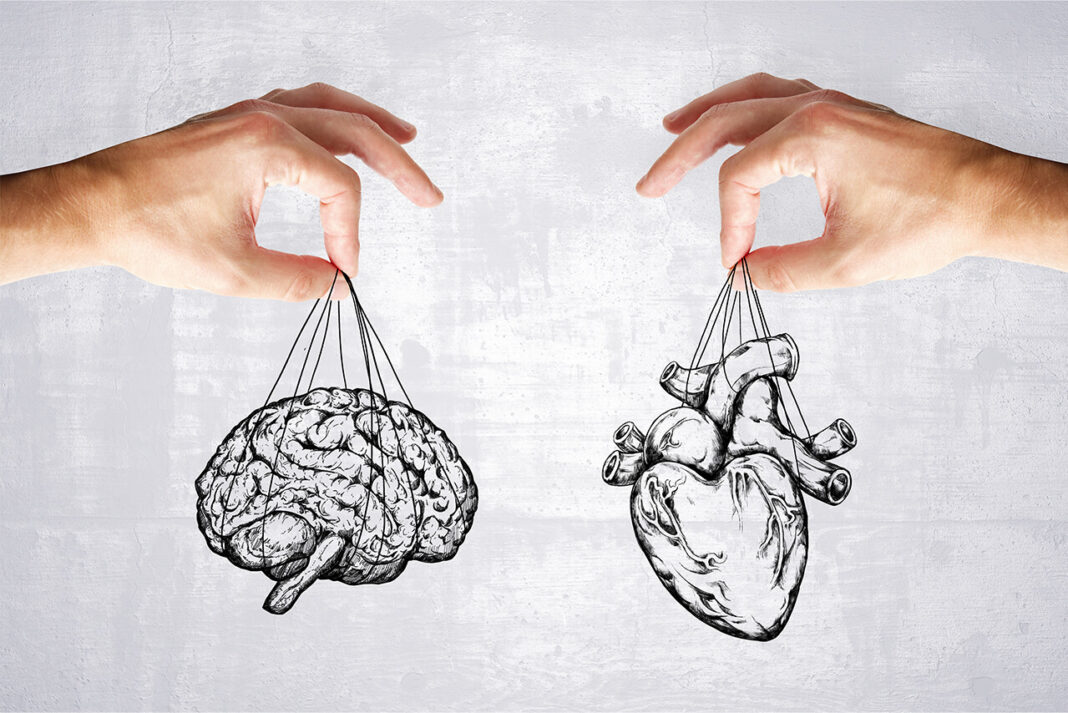Emotional intelligence (EI) is the ability to recognize, understand, and manage emotions—both our own and those of others. Defined by Salovey and Mayer (1990), emotional intelligence is “the ability to recognize and understand one’s own emotions, understand the emotions of others, use emotional information to guide thinking, and manage emotional expressions.” However, emotional intelligence is not limited to personal skills alone. It is deeply rooted in the brain’s complex neurological systems. The brain forms an intricate network involving various regions and neurotransmitters that underpin emotional intelligence. In this article, we will explore the neurological foundations of emotional intelligence, its psychological benefits, and ways to enhance this essential skill.
1. Foundations of Emotional Intelligence and the Brain
Emotional intelligence originates from various regions in the brain, with the limbic system playing a central role. This system processes emotional responses and helps regulate emotional experiences. Key components of the limbic system include:
- Amygdala: The amygdala processes and interprets emotional responses, particularly in reaction to intense emotions such as fear, anxiety, and anger. It helps determine our emotional reactions to these stimuli.
- Prefrontal Cortex: The prefrontal cortex is involved in controlling emotional responses and regulating social behavior. It is associated with “social control” within emotional intelligence, ensuring that emotions are harmonized for appropriate social interactions.
The interaction between the amygdala and the prefrontal cortex is crucial for emotional regulation. The amygdala detects emotional responses, while the prefrontal cortex helps control and regulate these responses, allowing for appropriate emotional reactions and healthy social engagements.
2. The Role of Neurotransmitters in Emotional Intelligence
Emotional intelligence also depends on the brain’s chemical balance, particularly neurotransmitters. These brain chemicals—such as serotonin, dopamine, and oxytocin—have a significant impact on emotional development.
- Serotonin: This neurotransmitter regulates mood, helps manage stress, and plays a role in overall happiness levels. High serotonin levels are linked to improved emotional regulation and resilience.
- Dopamine: Known as the “feel-good” neurotransmitter, dopamine influences motivation and reward systems. It plays a crucial role in goal setting and achievement, strongly supporting emotional intelligence. Higher dopamine levels increase motivation and lead to positive emotional states.
- Oxytocin: Often referred to as the “love hormone,” oxytocin is responsible for bonding, trust, and empathy. Elevated oxytocin levels enhance social bonding, improve empathy, and foster positive social interactions.
The balance of these neurotransmitters is essential for developing emotional intelligence and effectively managing emotional states.
3. Psychological Benefits of Emotional Intelligence
The benefits of emotional intelligence extend far beyond personal development, contributing to better mental health and improved quality of life. Key psychological advantages include:
- Stress Management: Emotional intelligence allows individuals to manage stress in healthier ways. Those with high emotional intelligence can regulate their emotional responses in stressful situations, reducing the negative impact of stress on mental health.
- Empathy and Social Relationships: High emotional intelligence enhances the ability to understand and respond to the emotional states of others. This ability boosts empathy, leading to stronger and more satisfying social relationships.
- Motivation and Goal Setting: Dopamine’s influence on motivation is crucial for goal-setting. People with higher emotional intelligence are more motivated to achieve their goals, and their successes reinforce positive emotional states, leading to higher productivity.
4. Methods for Developing Emotional Intelligence
Emotional intelligence can be developed and enhanced through intentional practices. Here are some effective ways to improve emotional intelligence:
- Awareness and Meditation: Mindfulness practices, such as meditation, help individuals recognize and regulate emotional responses more effectively, leading to better emotional management.
- Empathy Exercises: Practicing empathy by focusing on others’ emotions and experiences enhances emotional intelligence. Empathy exercises are particularly beneficial for developing social skills and improving interpersonal relationships.
- Controlling Emotional Responses: One of the hallmark traits of high emotional intelligence is the ability to control emotional responses, especially in stressful situations. Regular practice of emotional regulation techniques can lead to healthier social interactions and improved emotional resilience.
Conclusion
Emotional intelligence is not just a personal skill but also a process rooted in the brain’s biology and chemistry. Neurological structures and neurotransmitters play a pivotal role in shaping emotional intelligence, influencing everything from mood regulation to social relationships. By understanding the brain’s role in emotional intelligence, individuals can work to develop this skill and reap its psychological benefits.
Developing emotional intelligence improves mental health, enhances social connections, and leads to a more fulfilling life. By supporting the development of emotional intelligence, we promote healthier brain functioning, emotional balance, and overall well-being. This process is crucial for achieving psychological stability and leading a happier, more harmonious life.
References
Salovey, P., & Mayer, J. D. (1990). Emotional intelligence. Imagination, Cognition, and Personality, 9(3), 185-211.
Panksepp, J. (2004). Affective Neuroscience: The Foundations of Human and Animal Emotions. Oxford University Press.



